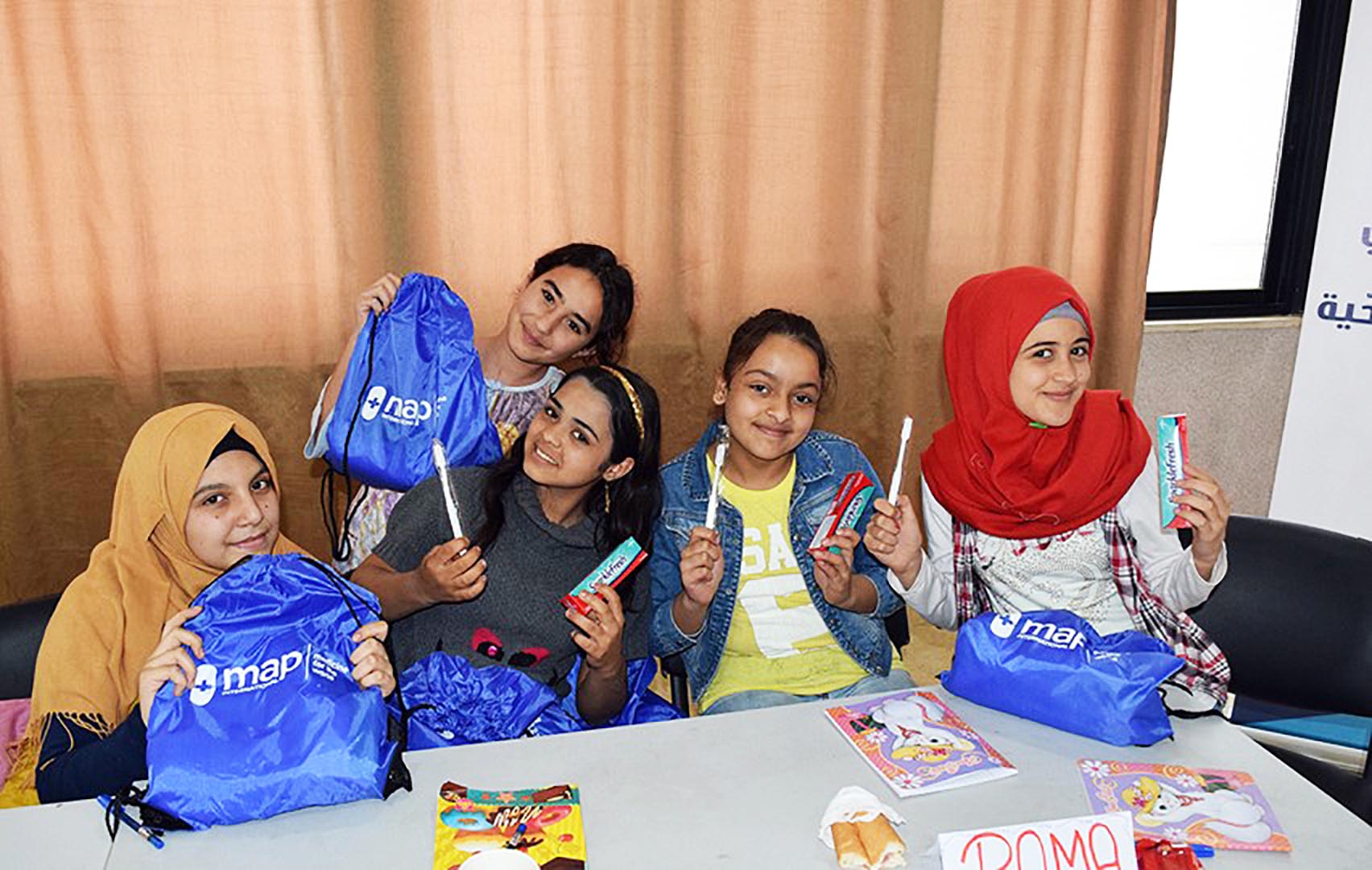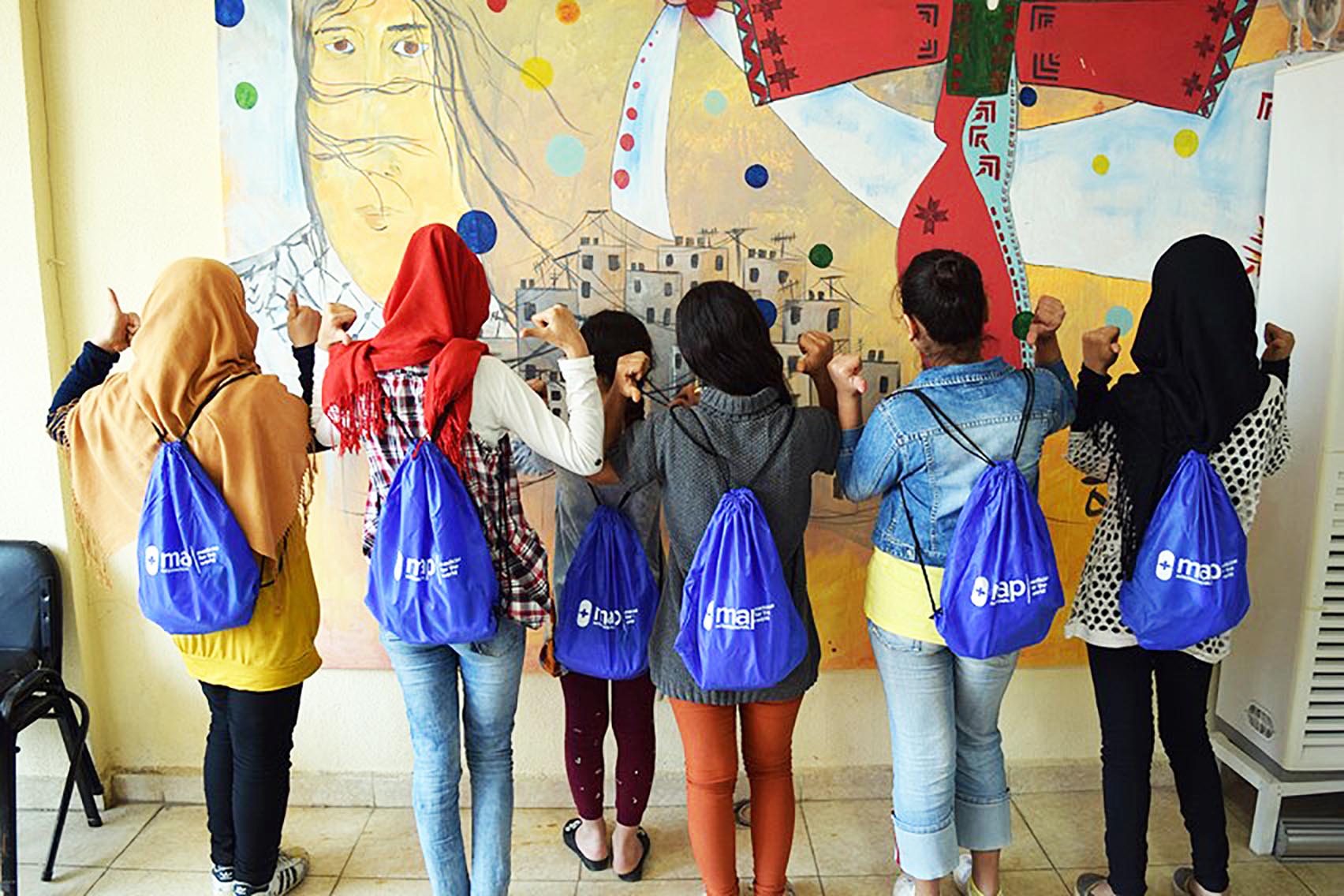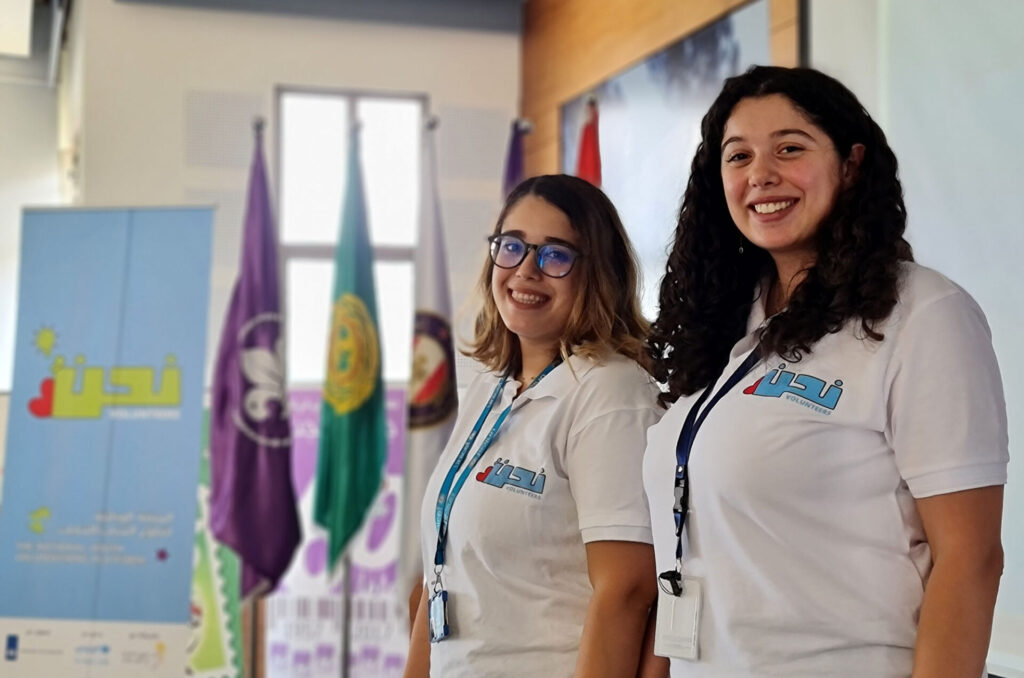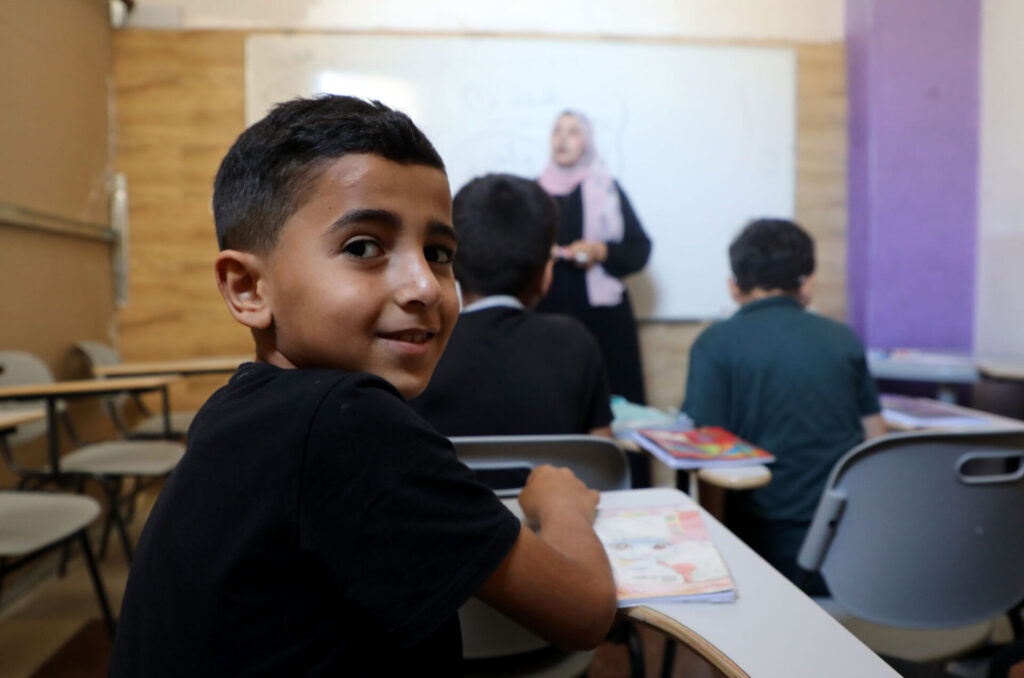Jul, 2018
Recognizing that women and girls were the key actors in improving health within the camp, Anera partnered with UNICEF to do outreach in Burj El Barajneh as part of the Community Based Sanitation and Hygiene Promotion Project.
In the southern suburbs of Beirut, Lebanon lies Burj El Barajneh; the most overpopulated Palestinian refugee camp in the city and home to more than 17,000 registered refugees; all living within a mere 1 square kilometer area.
Overcrowding, poor economic conditions, social and political marginalization has made the community in this camp vulnerable to poor sanitation practices and conditions. Within the camp, as in other camps across Lebanon, the consequences of these conditions fall primarily on women and girls, making them one of the most vulnerable demographic groups in the camp.
For girls, it’s not only their health that is at risk due to the dire sanitation conditions - whether it is disease or future reproductive-related issues - but also their family. When family members get sick in the camp, young girls are often expected to take care of them. As this cultural dynamic prevails in many camp households, it is easy to see the repercussions that this has on the health of the camp as a whole. Without proper training in health sanitation and hygiene, young women and girls in the camp are often unable to help sick family members, and many times, even themselves.
Recognizing that women and girls were the key actors in improving health within the camp, Anera partnered with UNICEF to do outreach in Burj El Barajneh as part of the Community Based Sanitation and Hygiene Promotion Project. This project aims to equip these young women with the tools and information they need to become empowered agents of change. With these tools they can serve their community through promoting hygienic living and good sanitation practices.
Hygiene Awareness Sessions
At 5 all-girls schools in the camp local Anera trained volunteers deliver hygiene awareness sessions to young women and girls. Lessons and activities in these sessions focus on three main topics: Personal Hygiene, Menstrual Hygiene, and the spread of Lice and Bacteria. Along with the awareness sessions, MAP International donated hygiene kits were distributed to the girls for their own benefit and as an incentive to encourage them attend more health awareness sessions. Hygiene kits included important sanitation tools such as soap, a towel, nail clippers, Band-Aids, toothbrushes, and other hygiene related items.
Nour, a local Anera trained volunteer, reflects on her first session teaching young women and girls at the Fraternity Association for Social Cultural Work,
“I feel like the girls really benefited from the information we gave them and they all seemed very engaged and comfortable during the session. They certainly asked a lot of questions. Especially about the MAP hygiene kits when they opened them. The kits helped initiate discussion in class and the girls were excited to have tools to promote cleanliness and prevent sickness and disease.”
To prepare for her sessions, Nour goes beyond mastering the materials received from Anera and researches additional health information so that she can be ready for any questions that come her way. For Nour, these sessions add significant value to the girls in the camp and help improve the health of the entire camp. “This information is essential to know and it is important that we teach it. This information can help change unhealthy habits and lead to a better lifestyle. In more serious situations, this information could save a life,” exclaims Nour.




